For Those Who Come After
Clair Obscur: Expedition 33 tests the boundaries of sentience by asking if we have control over our lives at all
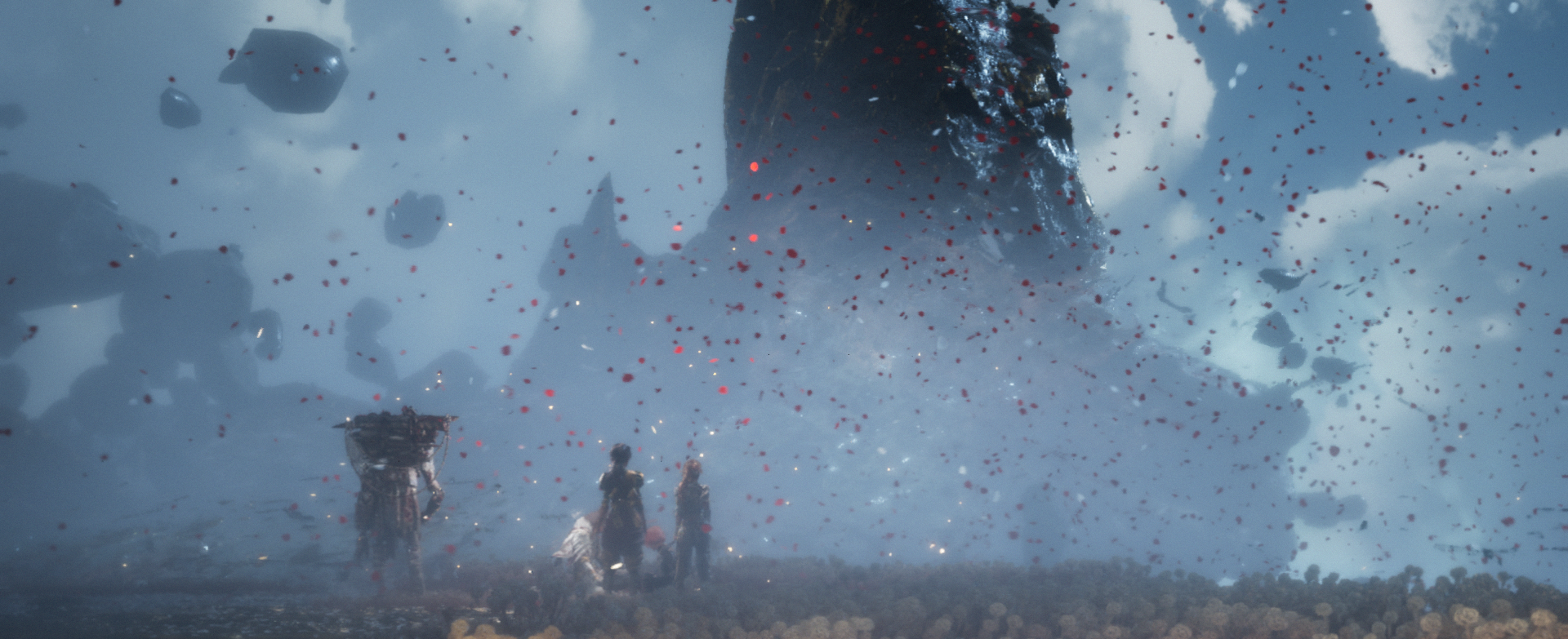

In Clair Obscur, at the end of Act 2, virtually everyone dies.
The events leading up to this began long before the game. More than 60 Expeditions fail before the launch of Expedition 33, where more than half of Gustave's brigade is expeditiously executed by the seethingly dark Renoir. After great trials, including Gustave's death and sacrifice, their company fells several Axons, climbs the Monolith, and defeats the Paintress. They fly back to Lumière on the back of their Totoro-like immortal friend Esquie, celebrating the first true victory ever experienced by an Expedition.
In a nuclear wave of flower petals and swirling energies, a Gommage hits. This time, the numbers scribed on the mammoth monolith do not matter. This Gommage is an eradicator of lifetimes, a push to rid Lumière of all remaining sentience. Lune, Sciel, and even Maelle are scrubbed from the rotted painting, leaving Verso behind.
And we are faced with the truth that all of this is a mere fabrication.
Tomorrow Comes
One of the few responsibilities of fiction is to present meaning in artifice. Not one of us is immune to the emotional manipulations that occur on page and screen. Tears fall even when we know this world before us isn't real; one of the more valuable aspects of human consciousness is that of empathizing with the created.
Video games are a profound medium. Their art form beautifully combines existing, layered creations—music, concept art, digital art, game mechanics, storytelling—into an unusually cohesive product. The fact that any video game exists at all is short of a miracle.
After the credits roll for Clair Obscur: Expedition 33, perusing social media channels produces a fairly binary takeaway: the painted world matters, or it doesn't. Years before Clair Obscur, one of its influences, Dark Souls, also presented us with the concept of a painted world. It's not novel to hide a world within a world, especially in a fantasy setting. Dark Souls never defines what a "painted world" is. While the player cannot escape until they run through the snow-crusted ruins and bypass (or kill) Crossbreed Priscilla, there is nothing mechanically or visually distinct about this supposedly false biome.
We enter the painting, we leave the painting. A world inside a world, but which is fictitious?
Act 2 clarifies that our beloved Lumière and its continent of erratic biomes is fictitious, or at the very least some kind of conjured reality. A painting not created by the Paintress but by her more powerful son, one member of the Dessendre family. Verso—the real Verso—paints and paints endlessly, trapping glammories of himself and his sister inside a slowly disintegrating dreamscape, a desperate hope of cohesion created in the wake of tragedy.
Clair Obscur is an unabashed tragedy, one that weighs the sins of creators against the desperate efforts of the created. It asks, repeatedly, what exists: the soul, God, sentience, free will.
Pain, it seems, is the ultimate reasoner, its desperation borne out of singular suffering enough to damn thousands, an aesthetic opiate formulated without consideration of choice or conscience.
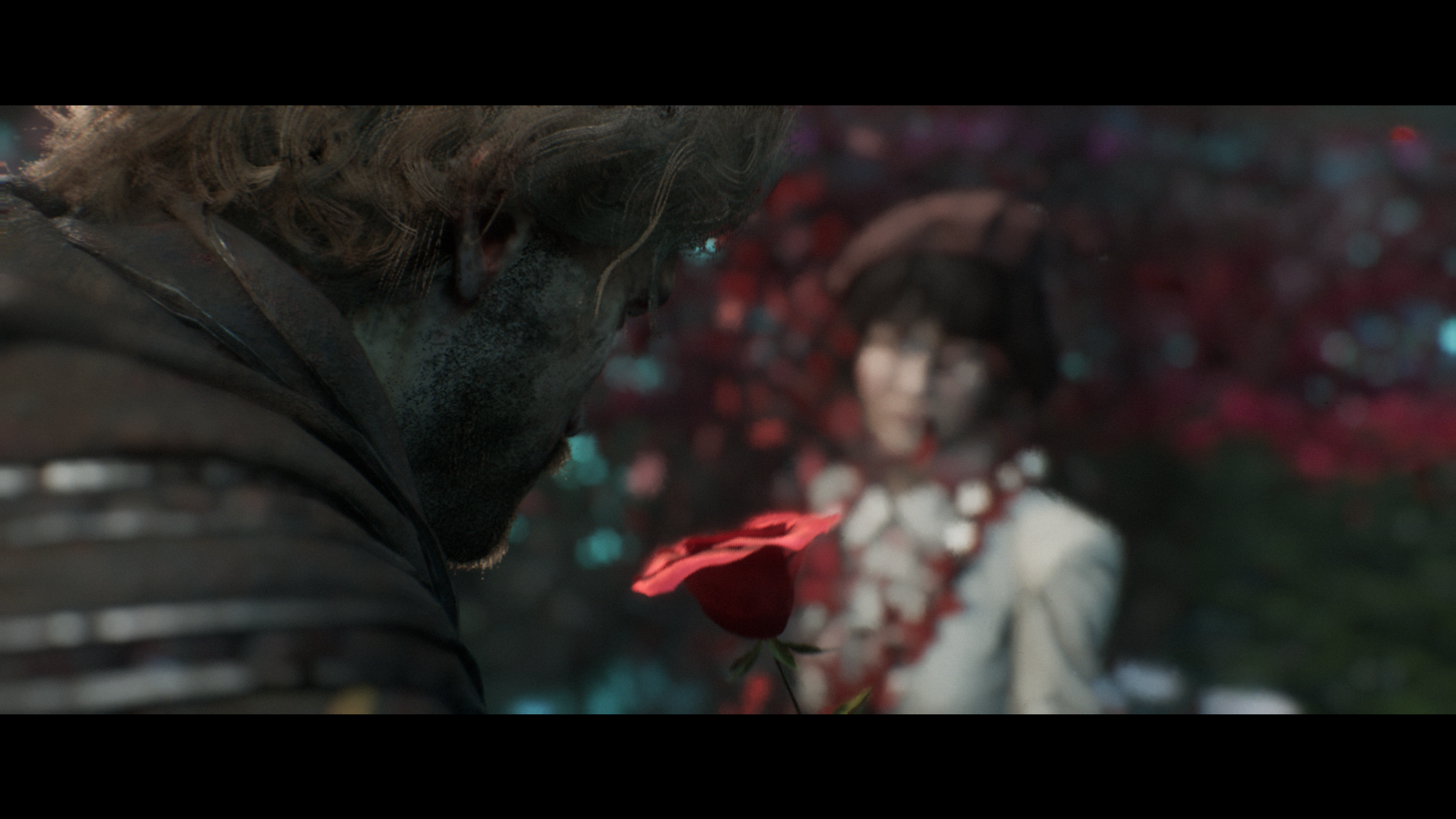
Video games are a profound medium. Their art form beautifully combines existing, layered creations—music, concept art, digital art, game mechanics, storytelling—into an unusually cohesive product. The fact that any video game exists at all is short of a miracle.
No Choice But Free Will
The world in Clair Obscur is filled with entities of arguable sentience. From the Gestrals to the Nevrons, there are "lesser" beings whose tribalism or aggression have both the player and the party questioning their place in the world.
It is a brave choice for a writer to establish that one series of characters is less real than another.
In Simulacra and Simulation, French theorist Jean Baudrillard argues that society has replaced meaning with symbolism, hiding the relevance of their lives behind culture and media. The Precession of the Simulacra has taken precedence over real lives, blurring reality with representation. Akin to the Wachowski's Matrix films, once the grand revelation occurs, the audience no longer sees the "digital" selves as meaningful, as life is hiding behind the veil of a 1999 utopia, instead mired in Babels, arks, and unseasoned porridge.
Baudrillard describes layers of reality that break down from faithful image to pure simulacrum. This final stage describes a hyperreal artificiality where sentiment carries the real, and the experiences of those who lack self-awareness have completely taken over. Human beings can both be bound by their sentimentality and made better by it.
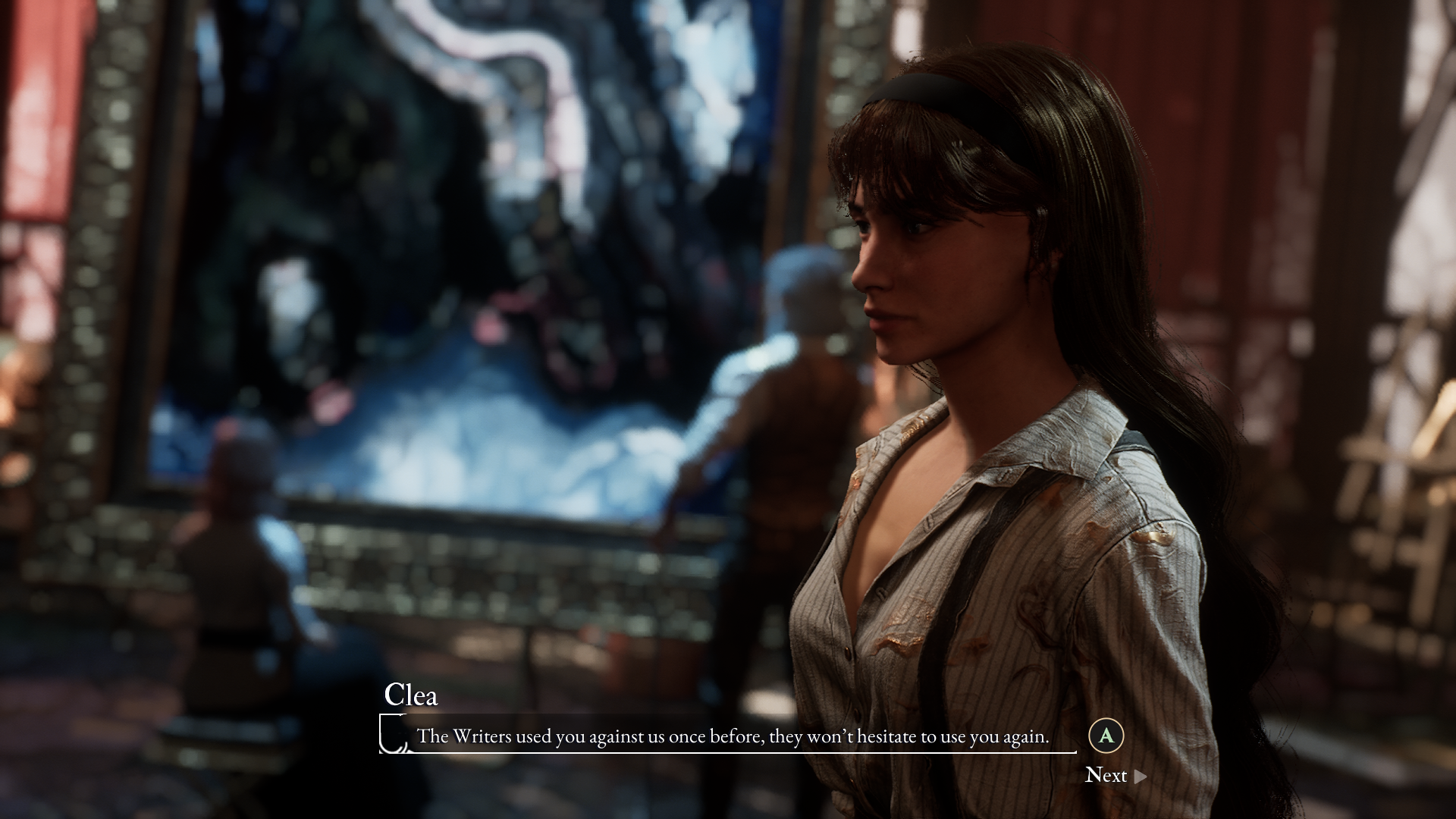
As with the layers of a painting, the more the illusion takes on the elements of the real, the more it becomes believable. Here, too, is the power of storytelling, where the author's efforts to bring the unreal to life can be so meaningful that its symbols blur the line between necessity and analogy. In the Pilot episode of the television sitcom Community, Jeff Winger uses a pencil as a prop to demonstrate to his study group how quickly human beings form attachments to the unreal. He names the pencil "Steve," snaps it in half, and the mortified onlookers watch in silence as "a part of them dies."
Arthur Schopenhauer described free will as ultimately peerless, that our physical freedom is not a description of absolute choice, the feeling that hindrance is our only occlusion toward the inspection of self-consciousness. Video games are a pointed interactive descriptor of this method. While we can blaze our paths through Clair Obscur in infinite ways, we all achieve the same end, and our finality is determined by a greater, pre-existing Will: that of the storyteller.
Verso, unfortunately, saw this from the beginning. As both a member of the Dessendre family and Expedition Zero, who forged paths with dozens of other Expeditions, he knew the end from the genesis, and could only manipulate, robbing himself of humanity and authenticity.
Purposeless Forays
“…art can be a Window, and art can be a Mirror. And great art. Great art is both. Son, you’ll never be a true artist if there is always a mask between you and the viewer, especially when the viewer is you…”
Renoir's Journal
Verso painted exactly one canvas: Lumière. As a child, he invested a piece of his soul into this unending masterpiece. Lumière became a place where his sister Clea would play, and a place his family both explored and exploited.
Many of us live blissfully ignorant of singular, destructive truths. We use religion, alcohol, drugs, people, and entertainment as a way of coping with tragedy and misfortune. The truth can sometimes be so painful that we must bury our traumas and live despite them.
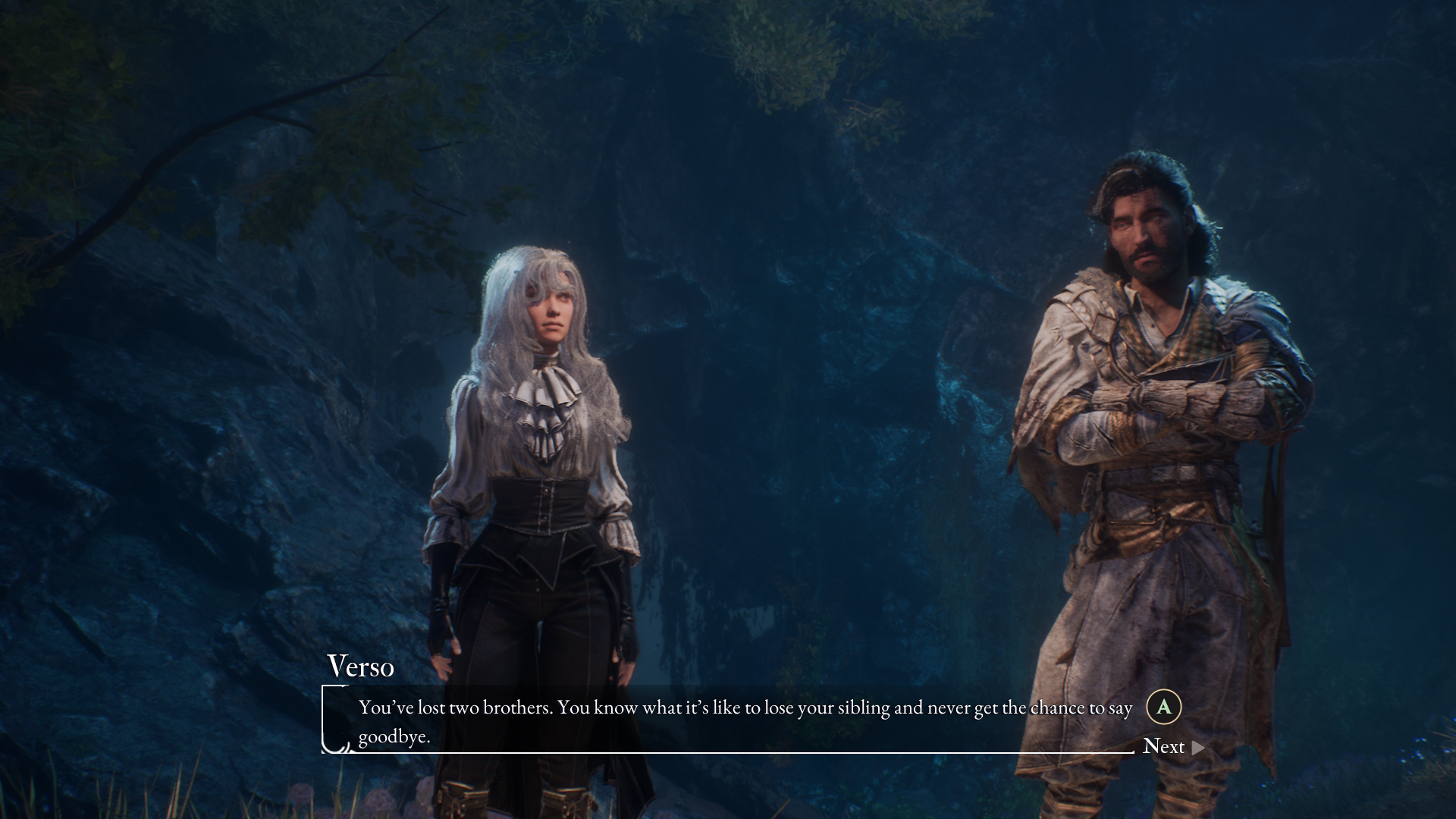
The Verso of the Canvas lived with family—his sisters Clea and Alicia, his father Renoir, his mother Aline—until the fracture separated Lumière from the rest of the continent. When his mother went missing, Verso and Renoir joined Expedition Zero to strike out against the Paintress and restore what was lost.
The truth broke Verso and Renoir, albeit in different ways. When it was learned that their world was nothing but a mirror, a facsimile, their mental states brittled. As copies, Verso and Renoir of the Canvas dedicated themselves to putting their family back together: Renoir became a brutal, authoritarian protector of his wife, the Paintress, and Verso swore he would find another way. As a misbegotten adventurer, he led countless Expeditions toward their ultimate demise.
Time in the canvas leads to the deterioration of the physical self. While Renoir and Clea did all they could to save Aline from this fate, their miracle of immortality made them outcasts in Lumière. The emulated Dessendre family, bound to the very canvas Verso created, was ostracized and forced to wander.
And while Verso's companions, Monoco and Esquie, knew of the truth, they dedicated themselves to Verso's task, their dedication and friendship anchored to their creator. As Verso traveled with Expedition after Expedition, he was forced to face the truth: immortality was a curse, and the only way forward was the destruction of the Paintress, and the freedom of his grieving mother. The Dessendre family could only heal in oblivion.
For Those Who Come After
The free will and motivations of Expedition 33 are tested multiple times throughout the game. Verso's lies and manipulations ultimately lead Maelle, Lune, and Sciel toward their ultimate path, sacrificing Gustave in an attempt to stymy his painted sister. Gustave, like the rest of the Expedition members of Lumière, dedicated his life to the knowledge that he would likely die. As the years pass and the numbers tick down, salvation is heaved upon the shoulders of the young. Legacies are subject to the erosion of their purpose. There may not be a way to stop the Gommage. There may not be a way to kill the Paintress.
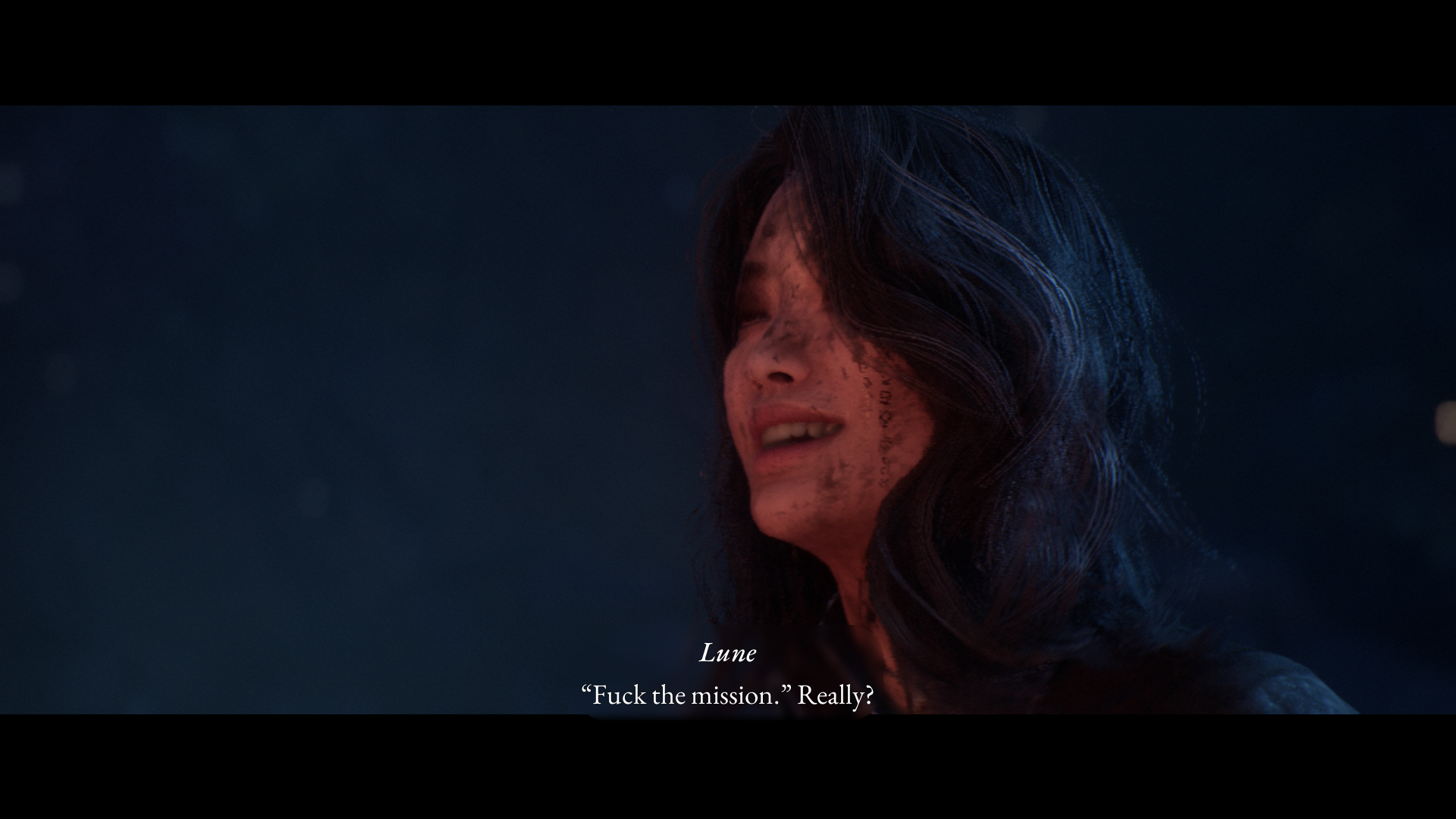
Baudrillard describes layers of reality that break down from faithful image to pure simulacrum. This final stage describes a hyperreal artificiality where sentiment carries the real, and the experiences of those who lack self-awareness have completely taken over. Human beings can both be bound by their sentimentality and made better by it.
Lune rejects the very concept of individualism by reminding Gustave, "We always said the future of Lumière is more important than any individual life. Do you still believe that?"
As with many RPGs, the core conceit of Clair Obscur: Expedition 33 is of the created resisting the desires of their creators. While it might be absurd to consider that a writer or painter gives sentience to their creations, they do instill meaning to identities far beyond their control. In the hands of the reader and the viewer, meaning can transform expeditiously.
Are the curtains blue, or is there subtext beyond such minor choices? Are the people in the painted Lumière people, or puppets? Clair Obscur attempts to force creative control on the player, consigning the ultimate choice to a binary that's split between tragic perspectives.
As Maelle, the painting is forced to continue on, and the reincarnation of Alicia uses her powers to bring Gustave, Sophie, and the rest of the dead back to life. Verso, like a fettered minstrel, is forced to entertain the party, bereft of purpose at the hands of his painted subjects. As Verso, Maelle leaves the painting through her Gommage, and the others slowly disintegrate. While a third ending might be desired, Clair Obscur forces upon the player a somewhat trivialized split between salvation and destruction, though outside of Verso and Maelle, agency is thwarted.
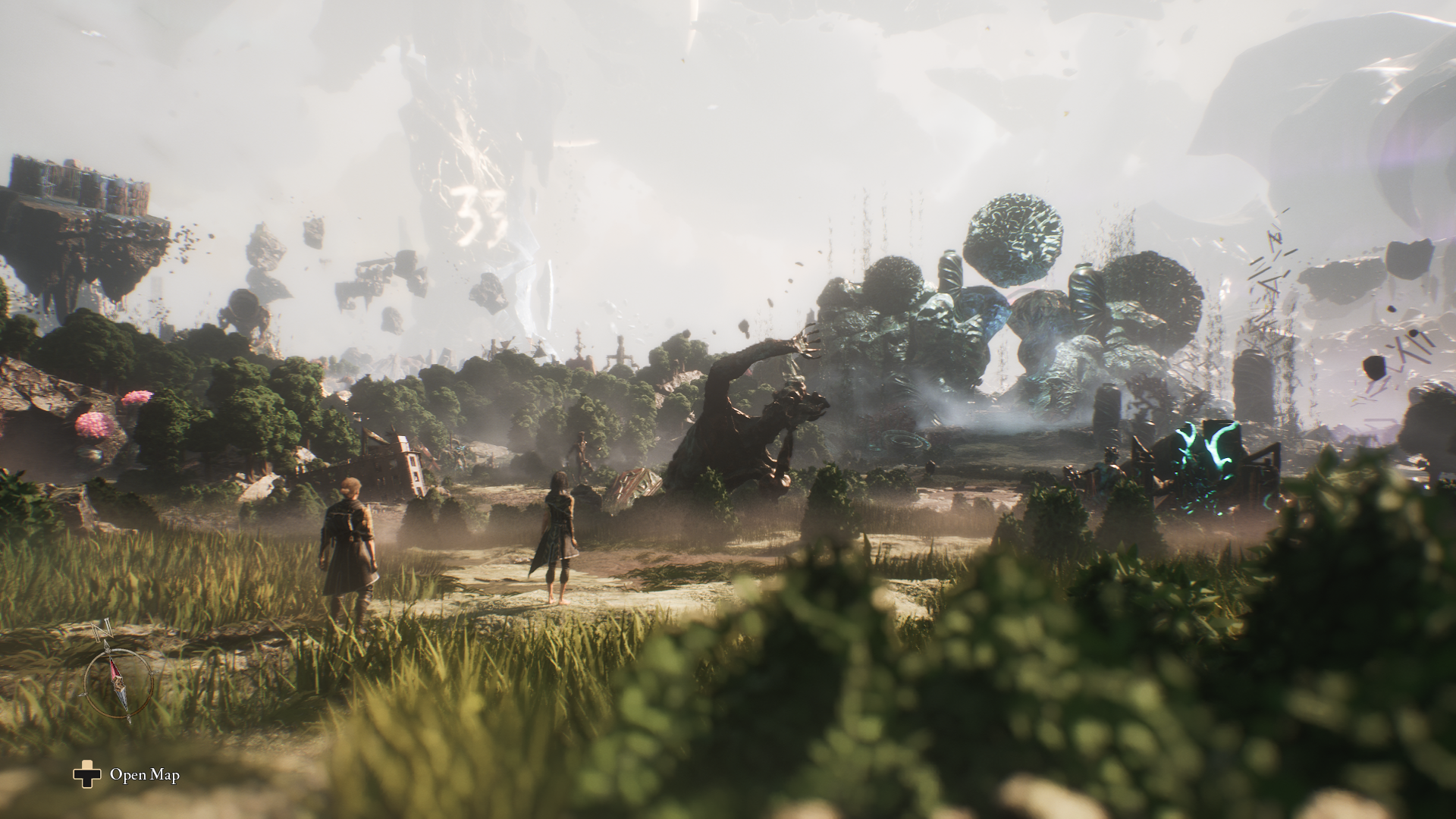
Folie à Deux
"There is but one truly serious philosophical problem, and that is suicide. Judging whether life is or is not worth living amounts to answering the fundamental question of philosophy. All the rest — whether or not the world has three dimensions, whether the mind has nine or twelve categories — comes afterwards. These are games; one must first answer."
Albert Camus, The Myth of Sisyphus
Lumière's absurdity is given context through the eyes of a child. As a place to escape the tragedy and intense melancholy of their real lives, Verso and Clea lost themselves in the abstract, pushing together biomes inspired by places only seen in storybooks.
Aline duplicated her life, crafting emulations of her family. Clea, in her pain, created the Nevrons. Alicia created the citizens. Verso, ever the child, crafted the Gestrals, Monoco, and Esquie. The family did not work together, but instead abused the power of Verso's canvas to revivify the desires destroyed by the fire.
Clair Obscur is not the first video game to take the route of meta commentary. Video games are, of course, an act of creation, and it takes real lives and lived hours to put together a masterpiece like this one. The external conflict of Writers versus Painters in the game can be taken in any number of ways, but I chose to see it as an internal conflict, a story about entities constantly at war with their natures.
The game's central storyline fashionably obscures the greater worldbuilding at play, and in a style reminiscent of From Software's best, allows only bite-sized chunks of background information that pertain specifically to the plot. The conflict between the Writers and the Painters was intense enough that one attempted to kill the other, which is not necessarily a sign of moral good versus moral evil, but instead a contest of wills.
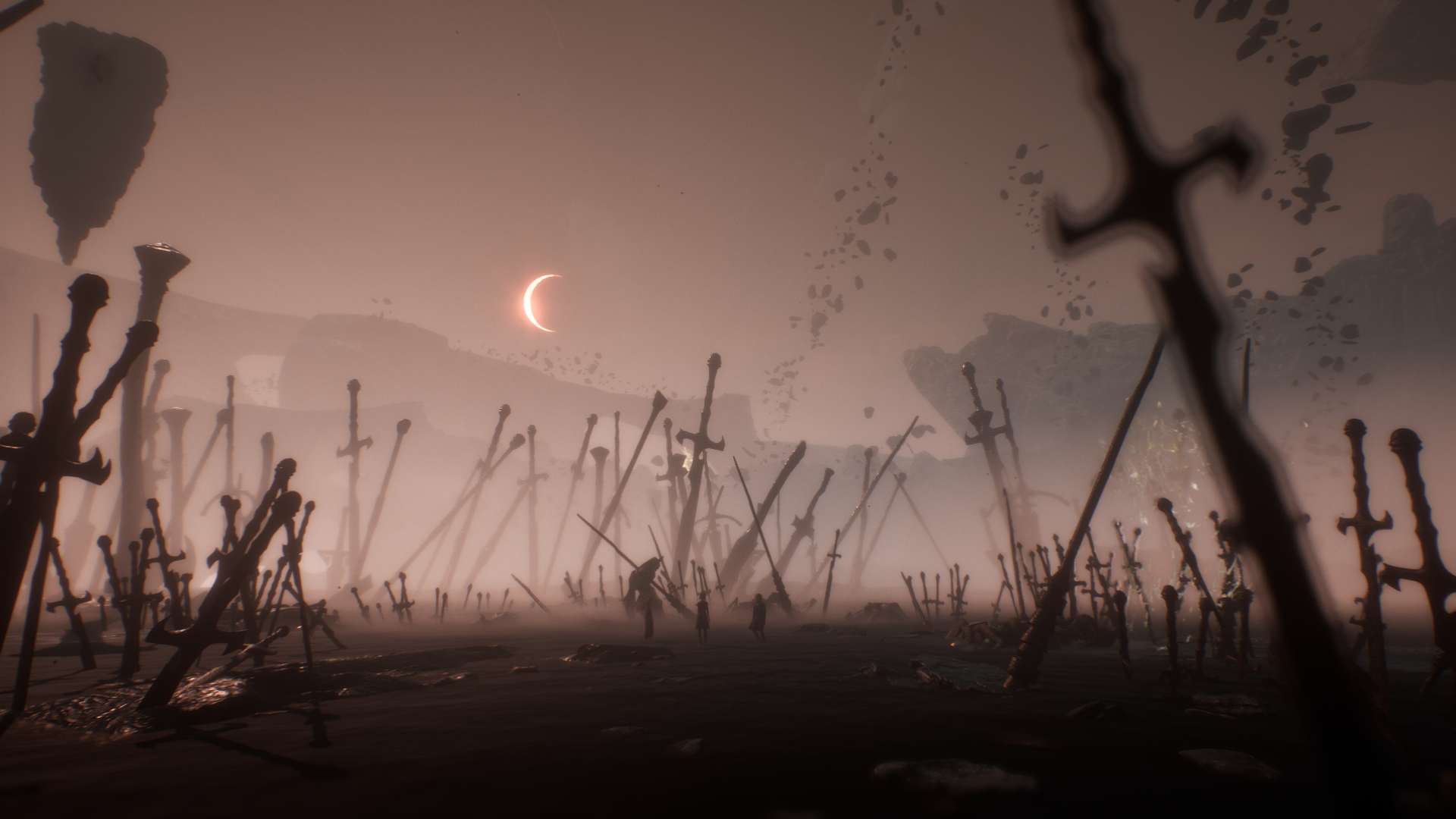
In the television show Severance, there is a moment where Helly's "outie" tells her "innie" that 'I am a person, you are not.' As with Clair Obscurs layers of the Real World and the Canvas, Severance splits its realities and characters subjugate themselves to hide away from the pain, frustration, and vulnerability that comes with living an unwanted life. Even though the innies are still people, and still an aspect of their higher format selves, they are denigrated as nothing more than appendages that can be coerced.
We want to believe that we have control over our lives. We want to believe in our decisions, that the choices we do or don't make have valuable outcomes. What would it do for the human psyche to realize that none of this is real, that we are all stuck within a Matrix-style machine that trivializes everything we've ever done? At the end of the story, the painted Verso implores Maelle to end the illusion. Even if it means the destruction of everything within the Canvas, the only true answer to their cycle of pain is erasure. Verso utilizes his free will to make the only choice that matters: oblivion.
When One Falls, We Continue
Clair Obscur: Expedition 33 wants us to face the inevitability of death. Human beings have dedicated themselves to the refusal of the inevitable, through religion, philosophy, entertainment, and more meaningless pursuits. It is tough for anyone to contend with the fact that each of us has an expiration date, and not only is that date completely unknown, but it is oftentimes unfair. Some die of old age, while others barely make it out of infancy, or not at all.
RPGs very traditionally make commentary on death. Clair Obscur has been repeatedly compared to Final Fantasy X, not just because of their respective narratives and complex turn-based battle systems, but because they centralize the inevitability of our courses. When Tidus first learns that Yuna is bound by sacrifice, he is outraged. He cannot believe that her supposed friends and guardians could simply lead her to the slaughter. But in their world, they've been born into death, and will do anything it takes for even a fragment of happiness. As the clock ticks down on the Paintress' monolith in Clair Obscur, that becomes increasingly real.
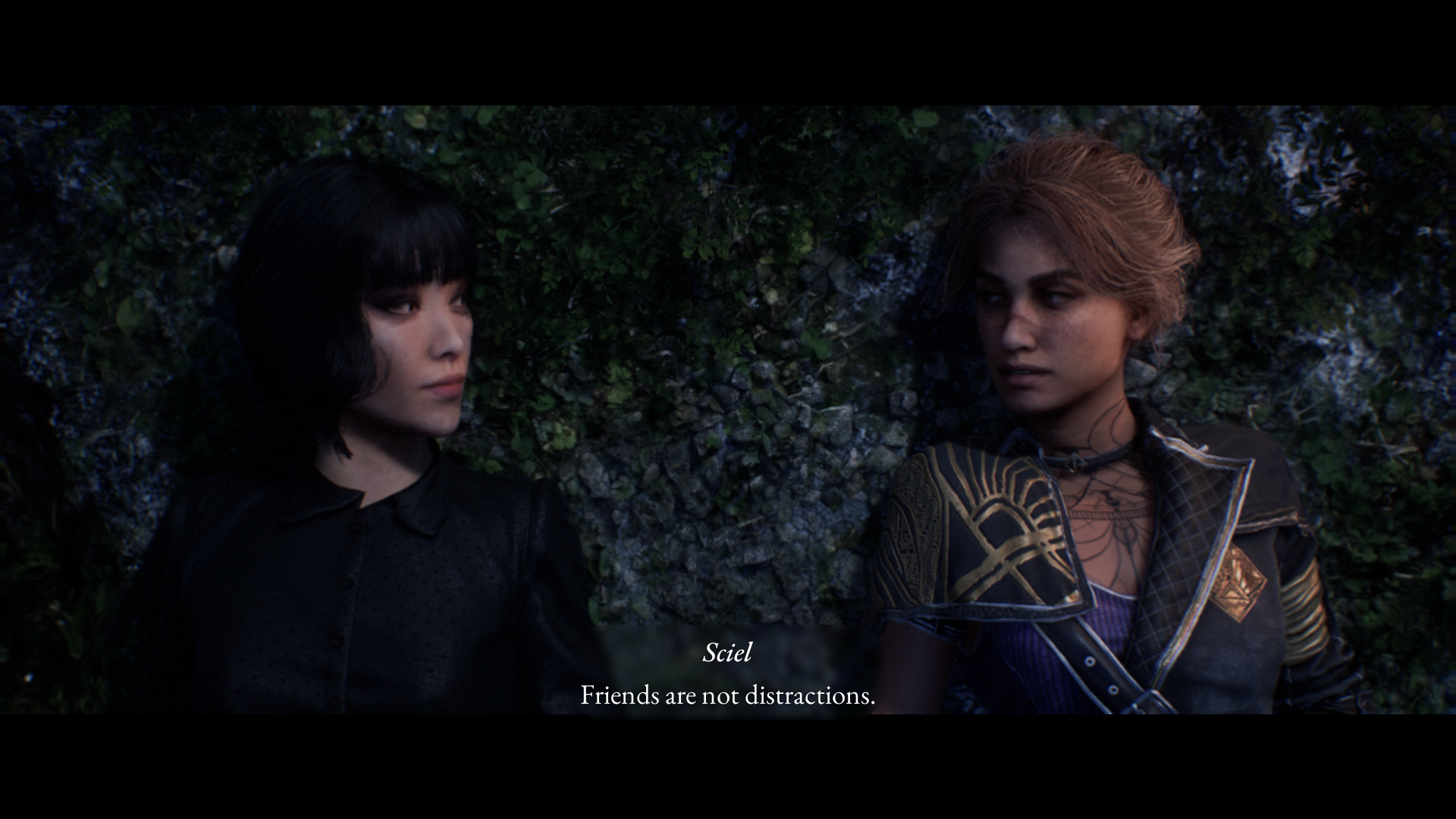
We want to believe that we have control over our lives. We want to believe in our decisions, that the choices we do or don't make have valuable outcomes.
At number 33, you learn that the totality of life has changed. Couples have children as soon as they can in an attempt to grant as much life as possible to those who come after. They no longer concern themselves with the philosophical or moral implications of childbearing: they must continue one.
In the first season of True Detective, Rust Cohle says, "I think the honorable thing for our species to do is to deny our programming. Stop reproducing, walk hand in hand into extinction - one last midnight, brothers and sisters opting out of a raw deal." While his antinatalist point of view seems cynical and alarming, his perspective is that death is the only outcome of being alive, that everything we experience is caught up in a cycle of misery, pain, and cruelty, with one defined end.
The members of each Expedition decide to reject that the ultimate philosophical answer is misery. While the game ultimately reduces itself to a binary of Verso and Maelle, their moment of contention is due to all those who came before. The journal displays Expedition after Expedition that sacrificed themselves for the good of all. There is an Expedition whose grandiose attempt resulted in an actual confrontation with the Paintress, and an Expedition that laid out all the handholds that Expedition 33 uses to scale impossible cliffs. Clair Obscur reinforces, both mechanically and narratively, that no action is too small when it benefits the greater good.
Joie De Vivre
Clair Obscur: Expedition 33 has felt like a breath of fresh air for newcomers and RPG enthusiasts alike. Though heavily inspired by the likes of Persona and Final Fantasy, it somehow elevates itself above its inspirations, bringing us a rich and dynamic narrative and addictive gameplay that's been missing from more recent titles. There's a reason that so many players are comparing it to older Final Fantasy titles, not recent ones.
The plot feels enriching because it does not pull its punches. While death can often be an uncomfortable topic, and we have no end of cruelties in today's world, fiction that faces these issues head-on will always feel more valuable than those that cannot commit.
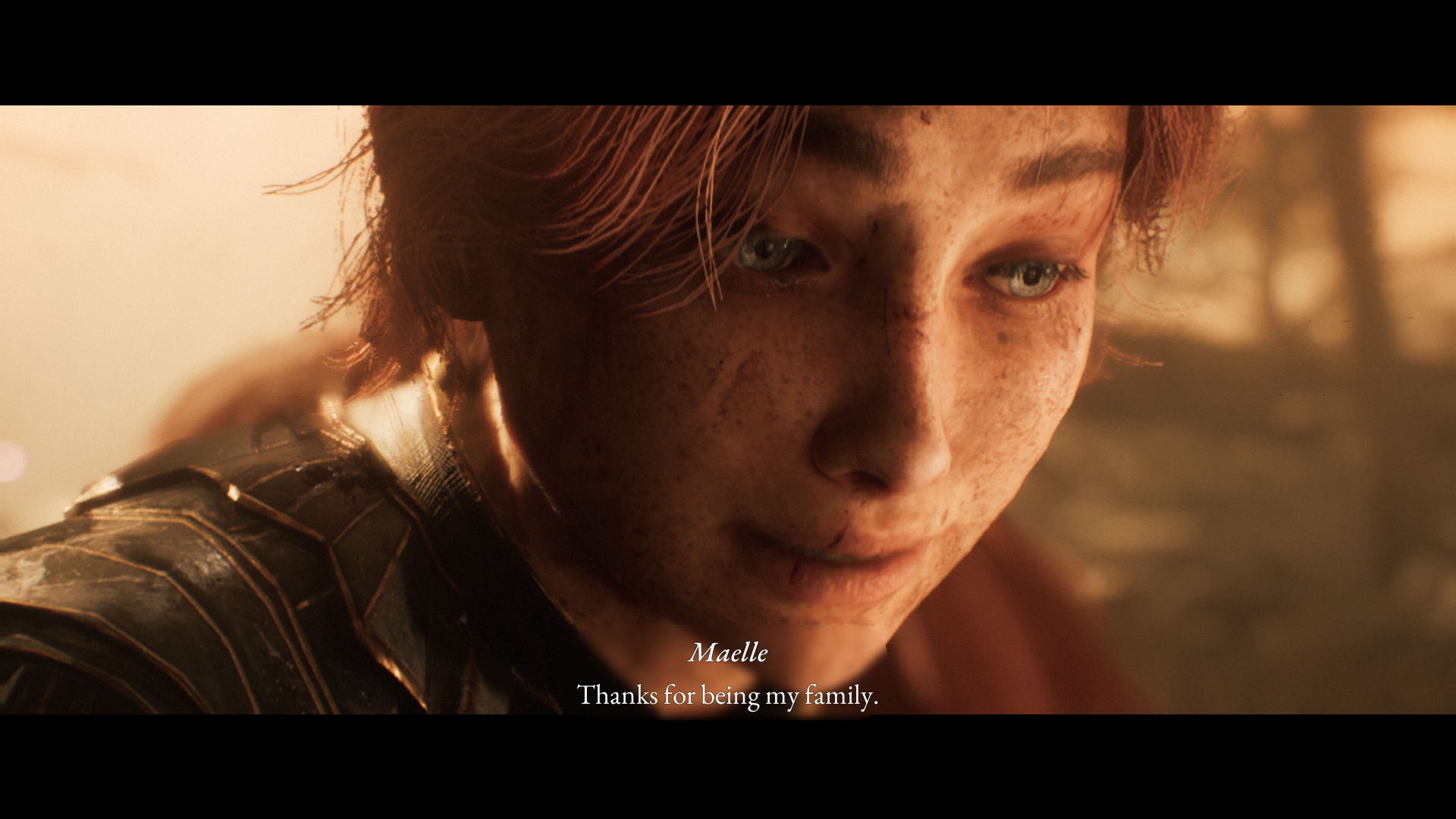
The joy of living is now, as it has forever been, a personal responsibility. Joy, for many, feels unreachable. It is not the fleeting feeling of happiness but a deeper exuberance that must often be measured by choice. Life is full of challenges, setbacks, and pain. It takes immense personal effort to showcase any optimism, especially if your life has been more difficult than most. After everything that Expedition 33 went through, it might make sense for them to walk hand in hand into the darkness. As a player, it's tough for me to find either Verso's or Maelle's ending to be completely compelling, as both characters could not bring themselves to ever step away from their perspectives for the greater good.
Clair Obscur: Expedition 33 is a tragedy. And like all great tragedies, there is no happy ending and no singular choice that answers every pain. We want to believe in quietly appealing fallacies, such as objective fairness or that hard work pays off.
"Don't do this," Maelle begs. "Don't leave me again." She fades into Verso's arms as he promises her that she's going to be okay, that her power supersedes suffering. As he hugs Monoco and Esquie, it doesn't matter that they are all creations of a Painter. Their pain, their sadness, is real. One by one, the players exit the stage, and Verso must contend with the fact that there is no correct answer.
In the real world, the Dessendre family gathers over Verso's grave. In his death, he was somehow the only one to make the tough choice that the others could not. Behind his grave, the party waves one by one, slowly vanishing into the ether as Alicia looks on. If they had known their fates from the beginning, would they have tried so hard? Or would the pain of knowledge have caused them to acquiesce to the dream?
The strength of games like Clair Obscur: Expedition 33 does not rest in the provision of easy answers. They want us to reason through the worth of continuing.
